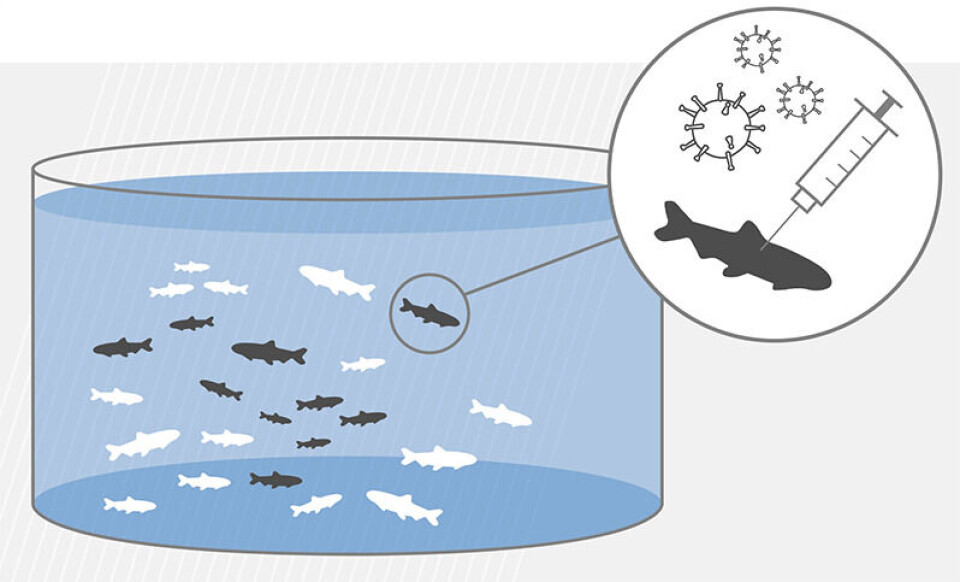
Skretting functional diet 'best against SRS in trial'
Skretting’s Protec product proved the most effective functional feed used against Salmonid Rickettsial Septicaemia (SRS) in a study coordinated by the Global Salmon Initiative (GSI), the company has said.
Although not prevalent in Norway or Scotland, SRS has been a problem for salmon farmers in Chile and Canada, who still largely rely on antibiotics to treat it.
SRS costs the Chilean industry around US$500 million a year, according to a Skretting press release.
Holistic approaches
“In order to get away from dependence on antibiotics, producers are looking for increasingly innovative and holistic approaches to disease management, such as the use of functional diets,” said the company.
In an effort to combat SRS, and in line with its support to the industry to reduce the use of antibiotics, the GSI coordinated a validation trial on Atlantic salmon to assess the effectiveness of four diets health available in the Chilean market, with a focus on the parameters of health and growth.
“The results of the trial confirm that Protec is by far the best nutritional solution on the market to address the SRS challenge,” said Julia Mullins, senior researcher at Skretting ARC.
Immune system
“It confirms that the unique properties of Protec can provide effective support to the immune system of fish when used in a preventive manner against the challenges of SRS and throughout the event. This, in turn, should give more confidence to the industry in general to use non-pharmacological options.
“In addition, the trial showed results consistent with those achieved in another similar study, also against SRS, carried out in Canada. “
The methodology
The ‘Benchmark of effective functional foods against Piscirickettsiosis’ study was carried out at the Quillaipe Aquaculture Center of Fundación Chile between March and June 2018, through a cohabitation challenge methodology, which consisted of infecting fish via intraperitoneal (IP) with an amount of the pathogen determined to kill 50% of the population of cohabiting salmon.
The effectiveness of the diets was evaluated according to the percentage of accumulated mortality of healthy fish (cohabitants), where at lower mortality, the protection delivered by the functional diet is better against an SRS challenge. The technical committee representing GSI that participated in the challenge comprised individuals from Aquachile, Camanchaca, Mowi and Blumar.
Results
According to Skretting, the results obtained specifically with the Protec diet in the trial were:
- Lower cumulative study mortality.
- The probability of dying from SRS is 78% lower than the control group.
- Fish were more resistant to infection, initiating the mortality curve later than the rest of the diets.
- 100% negativity to SRS in the population of surviving fish.
- The histological damage in the surviving fish was the least.
- Better specific growth rate (SGR) and specific feeding (SFR).























































